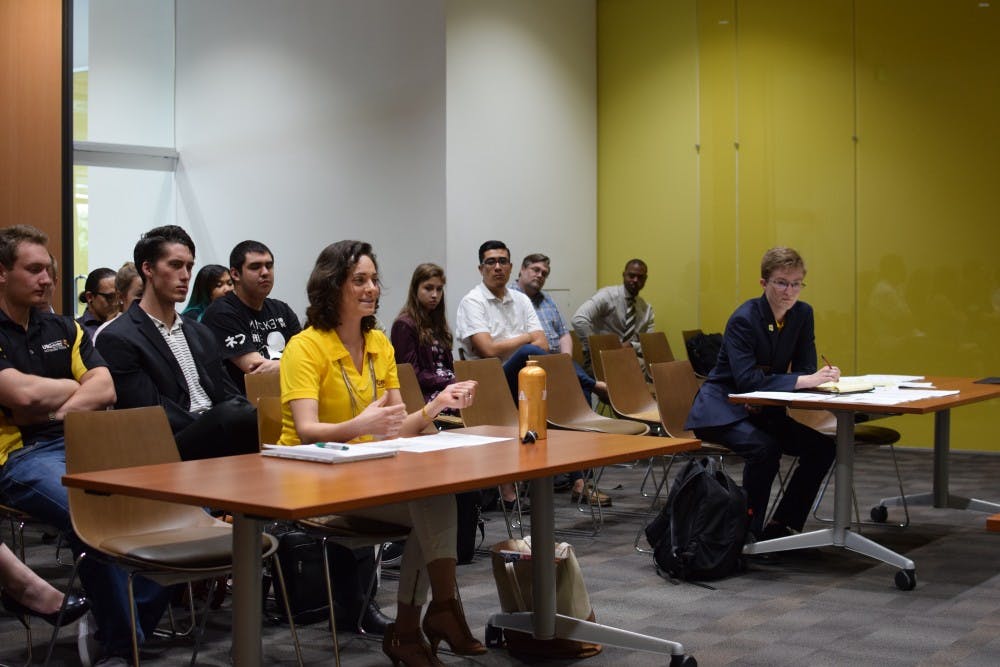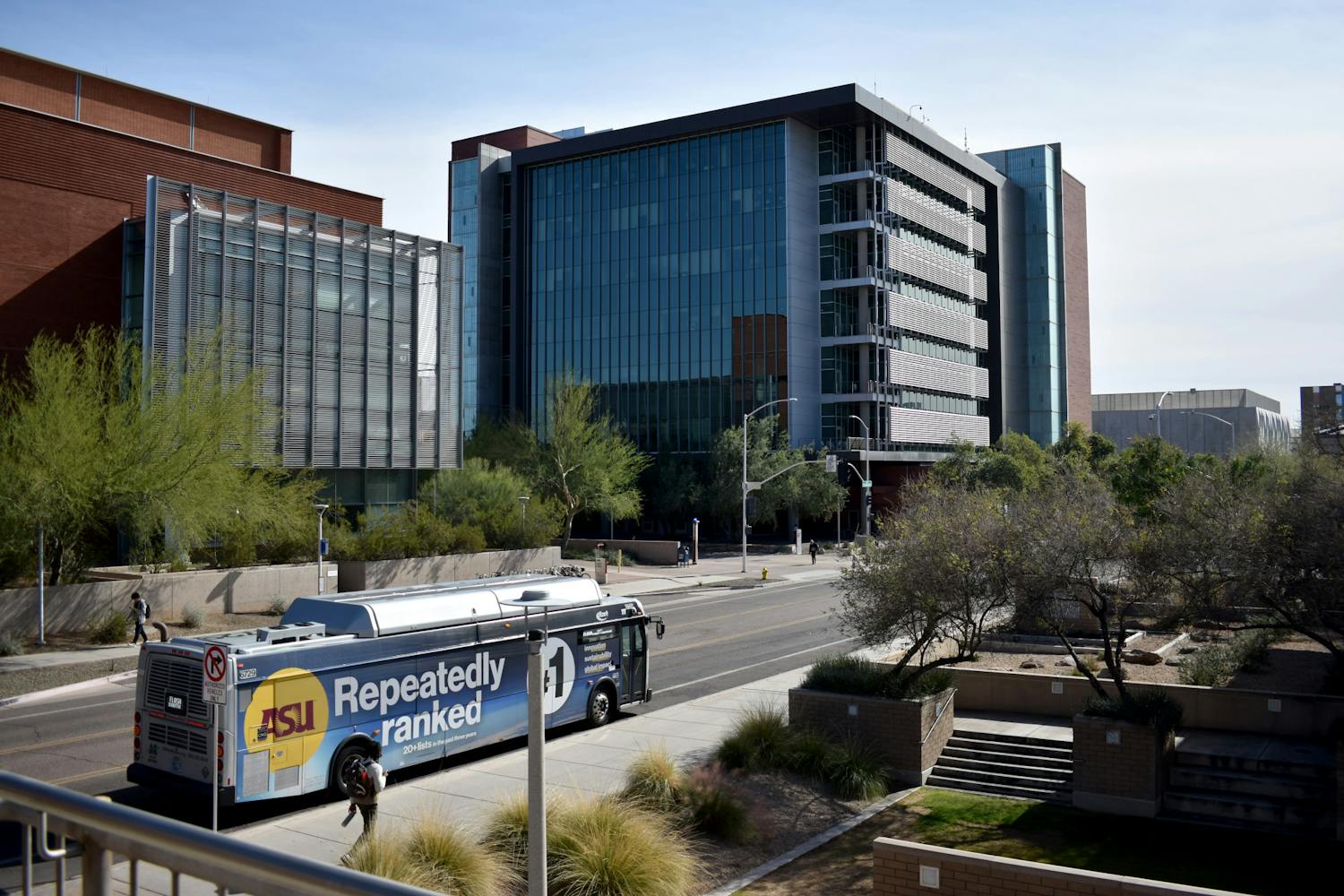The Associated Students of ASU Supreme Court ruled Friday evening to order the ASASU Council of Presidents to post minutes from each of their meetings and encouraged the Council to strive for added transparency.
The complaint heard was first filed with the court in February by Downtown Undergraduate Student Government Vice President of Policy Ryan Boyd.
In it, Boyd claims the Council violated multiple sections of USG's constitution by not holding open meetings, not posting minutes after meetings and not posting agendas within 24 hours of those meetings.
Chief Justice Tatiana Jenkins delivered the Court's opinion, ordering the COP to post minutes within 72 hours of every meeting, as well as suggesting that the Council host open forum meetings to address any concerns students might find within the minutes.
Jenkins also strongly encouraged the USG and Graduate and Professional Student Association senates to amend their constitutions to include guidelines for the COP under identical language to avoid any issues of jurisdiction.
She ordered the new requirements be met by Dec. 1.
Boyd's argument centered around his feeling that the COP was subject to the parts of the USG constitution that called for open meetings.
"If (the Council) is above the constitution, there is no remedy for anyone to have a complaint with the Council of Presidents," he said. "If they are above the constitutions, if they are above the bylaws, if they are above everything we've made, and are only adhering to their own (rules) — that are not somewhere you can find — then what's a student to do? There are significant concerns for transparency, there are significant concerns for accountability, and there is significant room for improvement."
Boyd cautioned that, under the current system, if an unpopular decision was made, there would be significantly more fallout than if the COP was run with more transparency.
Boyd argued that rules governing the Council are not in place for the good times — instead, they are there for when students have concerns or feel their rights are violated, he said.
GPSA President Pauline Venieris represented the Council in Friday's hearing. She said the USG constitution did not apply to the COP as the COP contained representatives from outside USG, as well as a faculty advisor from ASASU rather than USG.
It would be ridiculous to apply USG rules to every meeting at which a USG member was present, she said.
Venieris also argued against the necessity of open meetings in general.
"Having open meetings is not the only way for us to be assets," she said.
She emphasized her feeling that COP decisions are based on significant outreach and student interaction, and that a series of checks and balances is inherent to the system in the sense that USG and GPSA contain so many different levels and branches of government, including the court's hearing of Friday's case.
Student government at ASU is based on a model of shared governance, and having open meetings would compromise the theory of representative democracy and reduce efficiency, she said.
"I think pretty much everything that the justices said was within their purview to say," USG Tempe President Isaac Miller said. "I don't think that any of the results were bad. They all seemed pretty feasible at first glance. Although, I also know that the production of the meeting minutes falls to our advisor. I don't think it's really wrong to require that, though it does put consistently more work to our advisor."
Boyd said he was pleased with the results of the hearing.
"It was the best compromise we could get," he said. "I'm very happy that the court considered that. It does really well, because in the end, you're trying to balance two very important aspects: transparency on one end, and efficiency on the other."
Editor's Note: Due to a reporting error, a previous version of this article stated an incorrect time frame for meeting minutes to be posted by the Council of Presidents. The article has been updated with the correct information.
Reach the reporter at Arren.Kimbel-Sannit@asu.edu or follow @akimbelsannit on Twitter.
Like The State Press on Facebook and follow @statepress on Twitter




